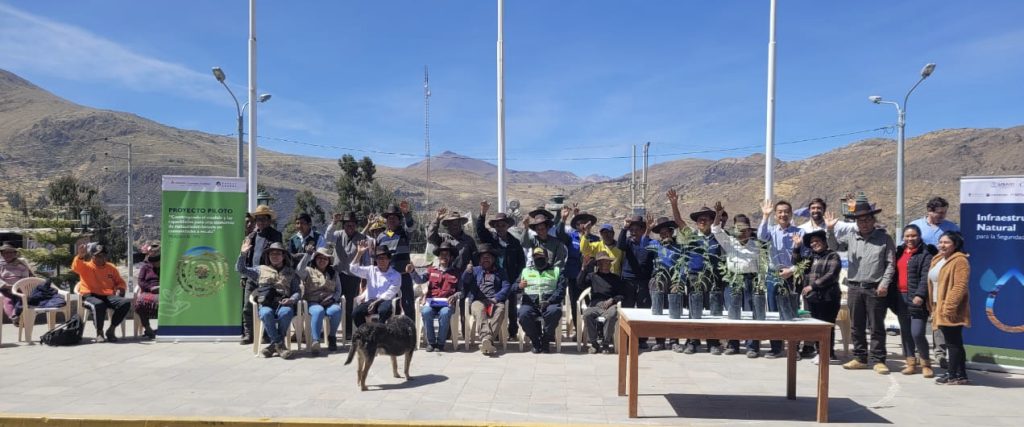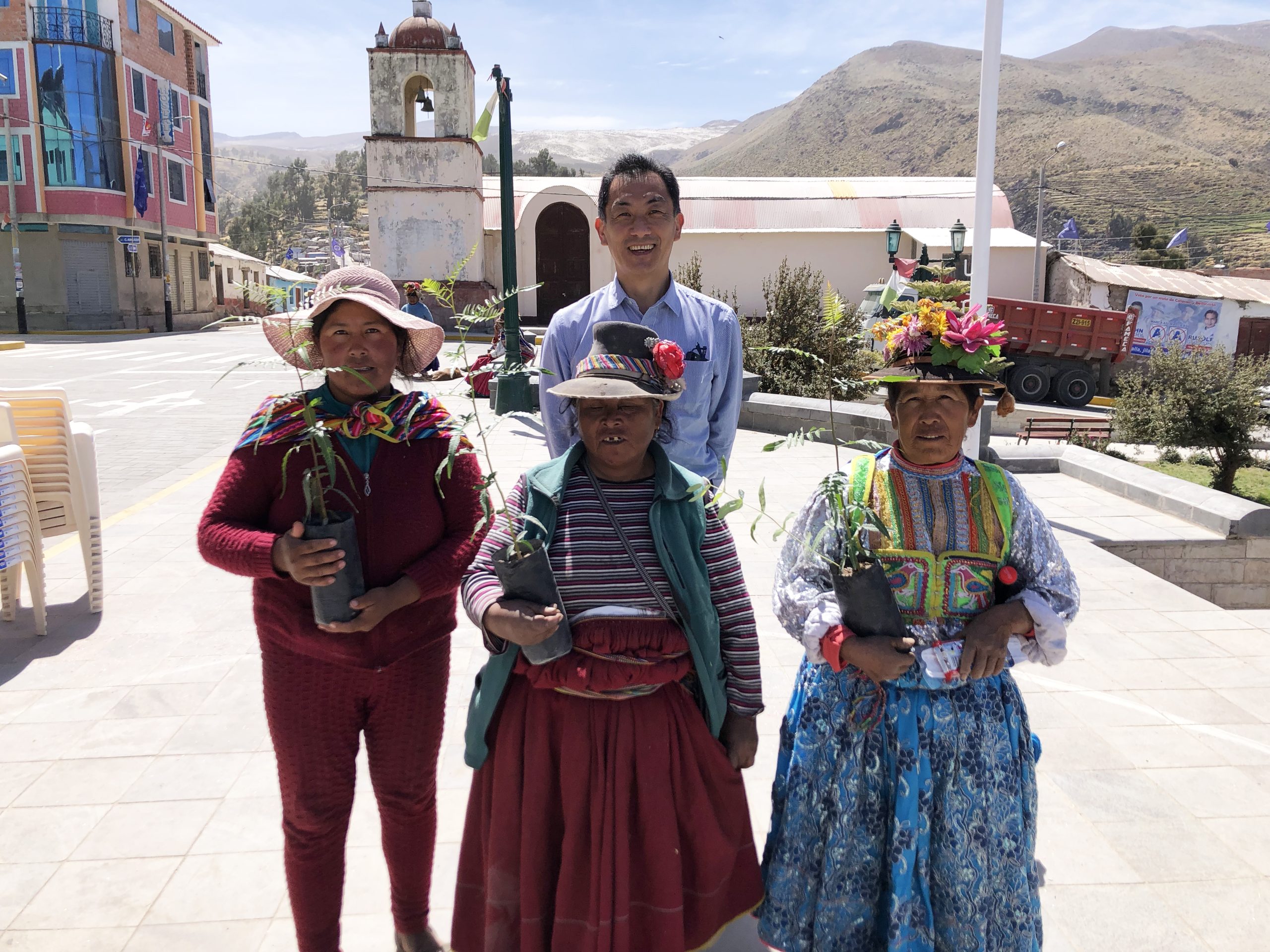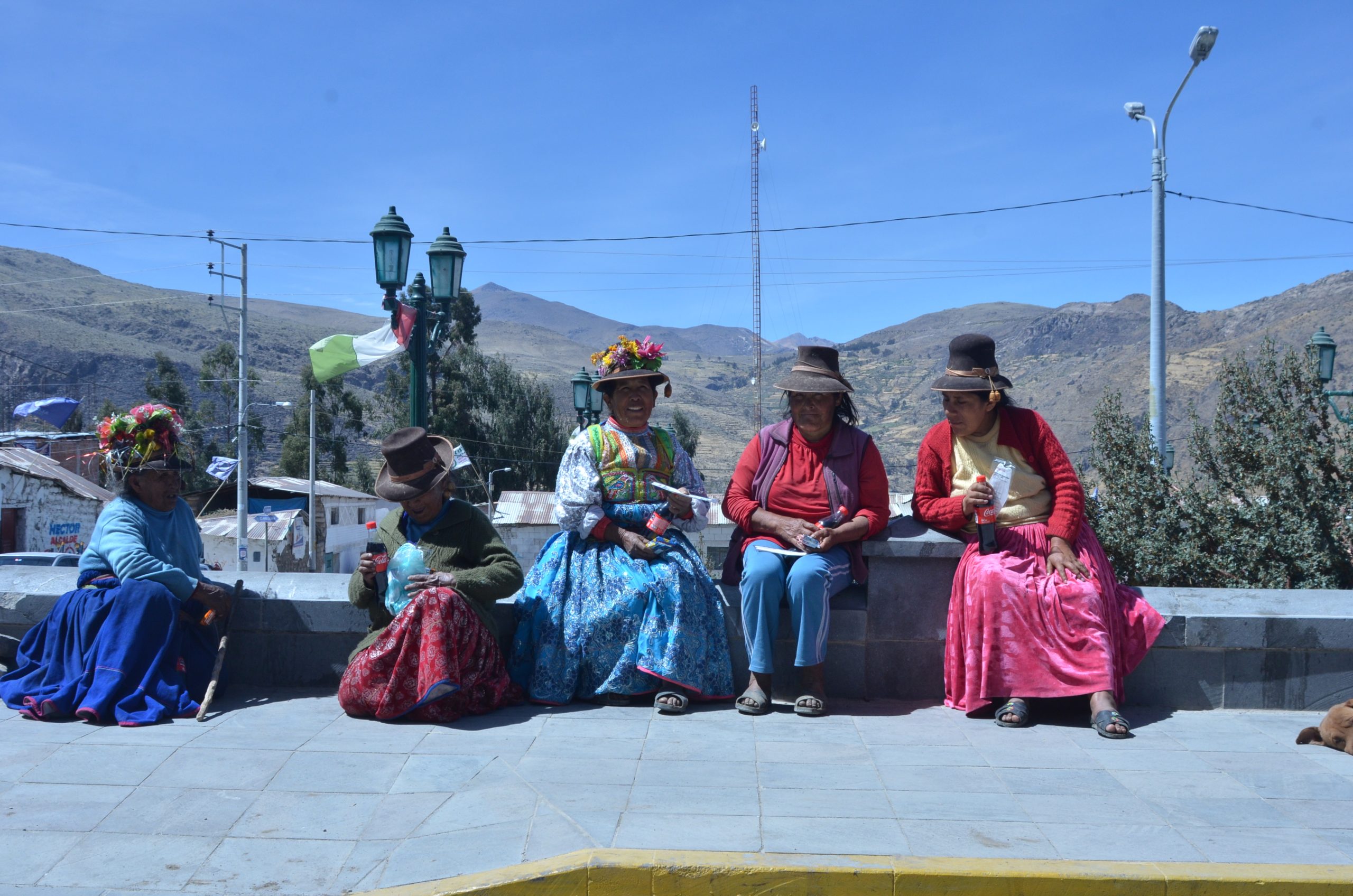On Wednesday September 21st, Forest Trends, together with the Municipality of San Cristóbal-Calacoa (Moquegua), celebrated an opening ceremony signaling the start of field activities for the pilot project “Building the Blueprint and Capacity for a Scaled, Community-Based Restoration Economy in Moquegua, Peru” (the “Blueprint”).
The event took place in the main square of San Cristóbal-Calacoa and was attended by over 40 community members, municipality officials, including the district Mayor, Mr. Ubaldo Cuayla, Forest Trends’ Fernando Momiy, and ecological restoration specialists with extensive experience working with rural communities in Peru. Furthermore, one of these specialists, an ethnobotanist, has his family roots in San Cristóbal-Calacoa and said he was thrilled to be able to apply all his research and expertise to the community where he spent his childhood.

The Blueprint is an initiative developed by Forest Trends and financed by the Mitsubishi Corporation Foundation for the Americas. The project’s overall objective is to deliver the blueprint, capacities, and partnerships needed to mobilize and sustain investments in restoring critical ecosystems for Moquegua’s water security. It will ensure the sustainability and effectiveness of these investments by putting upstream communities that manage those ecosystems at the center of the solution, especially women.

The Blueprint aims to drive lessons learned to a wider natural infrastructure portfolio being developed by the Natural Infrastructure for Water Security (NIWS) project in the Moquegua region, which represents over $ 10 M in public investment from the regional government. The Blueprint will be part of a regional development strategy spearheaded by Moquegua Crece, an initiative founded by Moquegua’s Regional Government, Mitsubishi Corporation, Anglo American, and the International Finance Corporation (IFC) to which Forest Trends is providing strategic advice. The goal is for the “restoration economy” business model developed in the Blueprint to drive benefits to communities through the sale of “low water footprint” seedlings and related services to other projects, and the sustainable use of plantations using these species. During its implementation, the Blueprint will also bring employment opportunities for elders that can’t secure jobs in public works due to their age.
Anglo American, and the International Finance Corporation (IFC) to which Forest Trends is providing strategic advice. The goal is for the “restoration economy” business model developed in the Blueprint to drive benefits to communities through the sale of “low water footprint” seedlings and related services to other projects, and the sustainable use of plantations using these species. During its implementation, the Blueprint will also bring employment opportunities for elders that can’t secure jobs in public works due to their age.
After a screening process that began in 2021 to identify suitable sites within the Moquegua region, the district of San Cristóbal-Calacoa was finally selected. In April 2022, Forest Trends formalized an agreement with the district’s Municipality to implement the Blueprint, including access to a municipality’s nursery. The event in San Cristóbal-Calacoa represented the official kick off for initiating activities on the ground, which started this month.

Viewpoints showcases expert analysis and commentary from the Forest Trends team.
Connect with us on Facebook and Twitter to follow our latest work.
